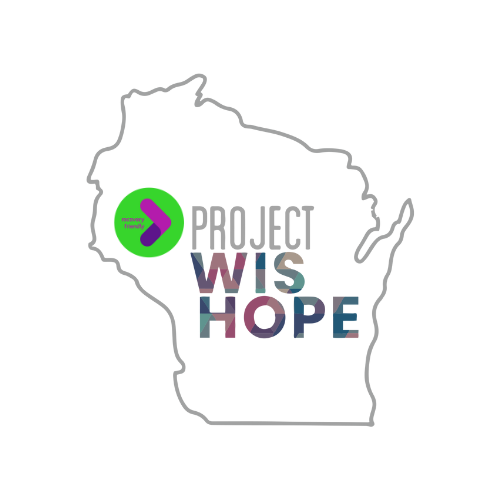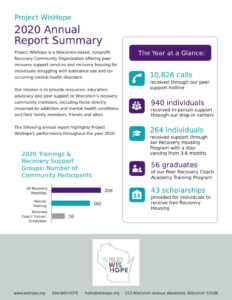Earlier this year, Peter Brunzelle, executive director of WisHope, had the distinguished honor of attending the SAMHSA Wellness in the Workplace Summit, held August 5-6, 2024, at SAMHSA Headquarters in Rockville, MD. This national convening, hosted by the Office of Recovery at the Substance Abuse and Mental Health Services Administration (SAMHSA), brought together federal and non-federal partners to explore innovative strategies for supporting individuals in recovery through employment initiatives.
WisHope’s Recovery Friendly Workplace Initiative, a program dedicated to helping businesses create supportive environments for employees in recovery, was highlighted as a leading example of how workplaces can foster resilience, reduce stigma, and strengthen the behavioral health workforce.
A National Conversation on Workplace Wellness & Recovery
The Wellness in the Workplace Summit focused on several key priorities, including:
- Best practices for recovery friendly workplaces and supportive employment.
- The role of peer support services in workplace wellness initiatives.
- Strategies to encourage employer buy-in and sustainable recovery-friendly policies.
As part of the U.S. National Drug Control Strategy for 2024, SAMHSA has prioritized expanding the number of states implementing recovery friendly workplace initiatives, recognizing the critical role that employment plays in long-term recovery. The summit provided a platform for experts like Brunzelle to share insights and collaborate with federal agencies, state leaders, and business stakeholders.
Peter Brunzelle’s Perspective on Recovery Friendly Workplaces
Reflecting on his experience at the summit, Brunzelle emphasized the importance of building a workplace culture that supports individuals in recovery:
“A recovery-friendly workplace isn’t just about hiring people in recovery—it’s about creating an environment where employees feel safe, valued, and supported in their wellness journey. At WisHope, we’ve seen firsthand how businesses thrive when they embrace recovery as part of their company culture. The conversations at the SAMHSA summit reinforced that employment is not just a financial necessity—it’s a vital component of personal dignity, stability, and long-term recovery.”
Brunzelle also underscored the growing momentum behind recovery friendly workplace programs nationwide and the need for ongoing education and advocacy to ensure their success.
The Future of Recovery in the Workplace
With the insights gained from the Wellness in the Workplace Summit, WisHope remains committed to expanding its Recovery Friendly Workplace Initiative, equipping businesses with the tools and resources to implement recovery-positive policies. The organization continues to work closely with employers, state leaders, and national partners to foster workplaces that reduce stigma, promote mental health, and empower employees on their recovery journey.
For more information about WisHope’s Recovery Friendly Workplace Initiative, visit WisHope’s website or reach out to their team to learn how your business can become a recovery friendly workplace.


